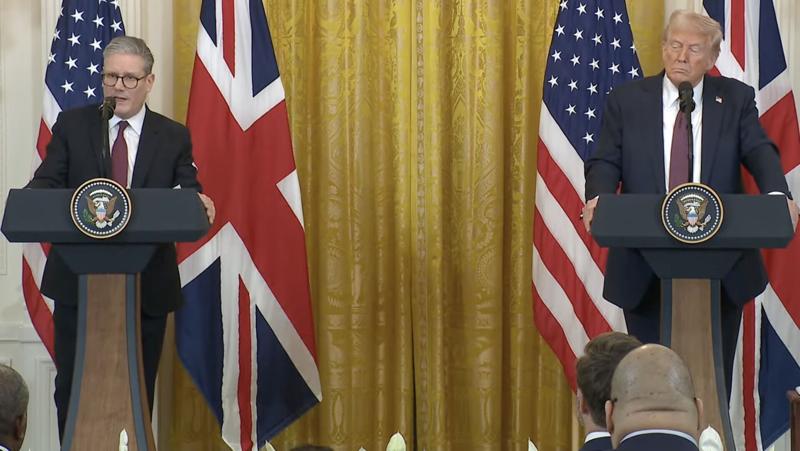The Trump administration announced a trade deal with the United Kingdom Thursday, its first trade deal since the president announced a raft of raised tariffs on a significant portion of America’s trading partners.
While the administration has described the deal as “historic,” some economists say it’s not a drastic change from what was already in place.
Senior Research Fellow at the American Institute of Economic Research David Hebert says the deal may point to some lessons learned on the administration’s part.
“One of the things that I think is important is the harmonization of steel tariffs and aluminum tariffs between the U.S. and the U.K. What that indicates to me is that President Trump is learning that he cannot go it alone against China. He’s going to have to build a coalition with other countries,” Hebert told The Center Square.
“What I was looking for was a much freer trade agreement – one that actually lowered barriers across the board, not just tweaked around the edges,” Hebert said.
Vice President of the Cato Institute’s trade policy center Scott Lincicome said the deal was a “modest improvement” but falls far short of how the U.S. should be amending its trade policy.
“In terms of trade liberalization, the deal is a modest improvement over what we had yesterday, but – with most US tariffs still in place and very limited new UK liberalization – remains worse than the pre-Trump status quo and far worse than what the U.S. could have had in place today if Trump hadn’t abandoned the [Trans-Pacific Partnership or the Comprehensive and Progressive Agreement for Trans-Pacific Partnership] in 2017,” Lincicome told The Center Square in an email.
“As the CPTPP’s completion and this week’s UK-India deal shows, other nations haven’t abandoned the traditional FTA model, and their companies and consumers are better off for it.”
The U.S. kept its 10% tariff rate on U.K. goods it announced on “Liberation Day” over one month ago. It slightly altered its tariff on cars, lowering it from 25% to 10% for just the first 100,000 vehicles from U.K. manufacturers each year. It also established a new trading union for steel and aluminum. The U.K. eliminated its 19% tariff on ethanol imports from the U.S.
President Donald Trump touted the deal as momentous for American farmers, as did Secretary of Agriculture Brooke Rollins.
“I don’t know if there’s an industry that has been treated more unfairly and has suffered more than our agriculture industry,” Rollins said Thursday morning. She called the deal a “HUGE WIN for Americans farmers & ranchers” on social media platform X and said it would “exponentially increase beef exports.”
Republican Reps. Elise Stefanik, R-N.Y., and Jim Jordan, R-Ohio, also took the deal as a sign of more good things to come.
“President Trump’s trade deal with the UK is the first of many to come,” Jordan wrote on X Thursday. “There’s no better negotiator. There’s no one better to fix Joe Biden’s broken economy.”
House Democrats continued to hammer the message that Trump’s economic policies and tariffs are damaging American small businesses. They reposted a post from Rep. Pete Aguilar, D-CA, chair of the House Democratic Caucus and a member of the House Appropriations Committee..
“Donald Trump and Republicans have launched an all-out attack on small businesses while hardworking families are struggling to get by. Today, I joined@HouseDemocrats for a hearing on how Trump’s policies are hurting small businesses across the country,” Aguilar wrote.







